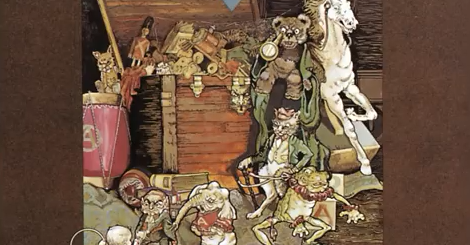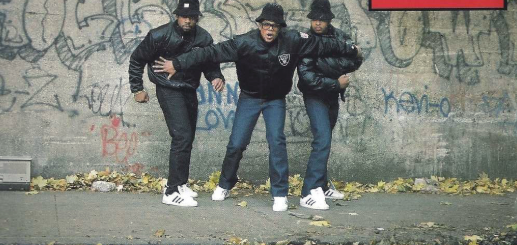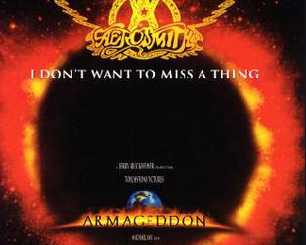Last Child by Aerosmith Lyrics Meaning – Unearthing the Nostalgia in Rock’s Ballad of Return
Lyrics
I’m living back home
Right
Yeah, yeah
Take me back to a south Tallahassee
Down cross the bridge to my sweet sassafrassy
Can’t stand up on my feet in the city
Got to get back to the real nitty-gritty
Yes sir, no sir
Don’t come close to my
Home sweet home
Can’t catch no dose
Of my hot tail poon tang sweetheart
Sweathog ready to make a silk purse
From a J Paul Getty and his ear
With her face in her beer
Home sweet home
Get out in the field
Put the mule in the stable
Ma, she’s a cookin’
Put the eats on the table
Hate’s in the city and my love’s in the meadow
Hands on the plow and my feets in the ghetto
Stand up, sit down
Don’t do nothin’
It ain’t no good when boss man’s stuffin’ it
Down their throats for paper notes
And their babies cry while cities lie at their feet
When you’re rockin’ the street
Home sweet home
Mama, take me home sweet home
I was the last child, I’m just a punk in the street
I was the last child, I’m just a punk in the street
I was the last child, I’m just a punk in the street
I was the last child, I’m just a punk in the street
I was the last child, I’m just a punk in the street
Aerosmith’s ‘Last Child’ is more than a frolic down memory lane; it’s a rock and roll quest for the essence of self amidst the fast-paced clamor of urban life. Released in 1976 on the album ‘Rocks’, this song resonates with generations as it encapsulates a profound yearning for the simplicity and authenticity of home.
Teeming with vivid imagery and Steven Tyler’s iconic wail, the track is an explosive testament to the era’s social and cultural landscape. It’s a profound narrative of personal emancipation and the universal search for identity that beckons listeners to peel back the layers of its gritty poetry.
The Blazing Riffs of Homecoming
Guitar licks that scream of an era, ‘Last Child’ thrusts you into the throes of nostalgia with its opening bars. The music intricately weaves a sense of urgency and longing, a siren call back to something more fundamental and grounding than the neon lights of the cityscape.
The amalgamation of bluesy swagger and hard rock edges wraps a narrative of rambunctious youth in an anthemic package. It’s in the instrumentation that Aerosmith manages to express what words alone might’ve fallen short of— a homecoming that’s as raucous as it is heartfelt.
The Southern Roots Revival in Lyrics
Torn between the chaos of urbanity and the solace of rural life, ‘Last Child’ serves up a lyrical dichotomy. Verses like ‘Take me back to a south Tallahassee’ not only paint an idyllic picture of the American South but also spotlight the dissonance many feel when plucked from their cultural hearth.
It’s a narrative that’s woven into the American fabric— the tension between advancement and heritage. These words do more than just convey homesickness; they lament the loss of a connection to the land and to the ‘real nitty-gritty’ of existence.
The Hidden Meaning of ‘Last Child’
Beneath the surface of reminiscence and rebellion, ‘Last Child’ harbors a poignant critique of capitalist ambition— ‘It ain’t no good when boss man’s stuffing it down their throats for paper notes.’ Tyler’s lyrics conjure the sentiment of alienation in the face of material pursuit, a tale coinciding with the waves of disillusionment of the ’70s.
This track isn’t merely a ballad of homesickness; it’s an anthem for the forgotten, a voice for the ‘last child’ in all of us who yearns for authentic experience over the insatiable hunger for superficial success that characterized the era.
Unforgettable Lines That Define A Generation
‘I was the last child, just a punk in the street.’ These aren’t just memorable words; they are an identity claimed by those who felt sidelined by the so-called American Dream. Tyler’s refrain becomes a unifier for a generation of ‘last children’ seeking solace in the purity of their roots over the hollow glitter of the city lights.
Here’s where ‘Last Child’ etches itself into the collective memory of rock. It captures the essence of a generation standing at the crossroads of profound social changes, wrapping their confusion and comfort-seeking into a phrase that’s as simple as it is powerful.
Musical Bridge Between City Lights and Country Roads
The song’s bridge acts as a conduit not only between verses but between worlds. Through the interplay of longing vocals and the grounding rhythm section, Aerosmith constructs a musical passage that delivers the listener back and forth between the frenetic pace of metropolitan life and the tranquility of open fields.
The potency of ‘Last Child’ lies in this ability to oscillate, to tug at the urbanite’s soul with reminders of pastoral beauty, and to do so with the kind of fervent energy that only Aerosmith could muster. It stands testament to the unending quest for a place that feels like home.








